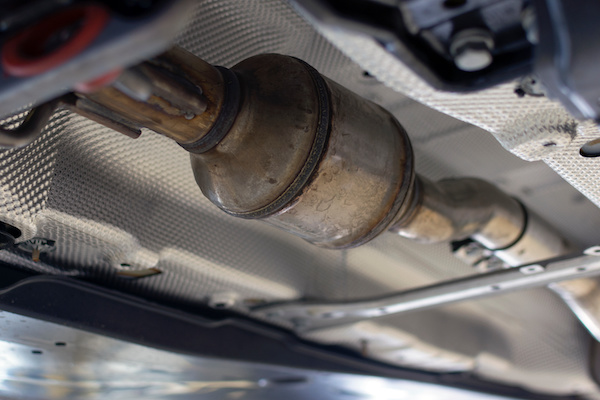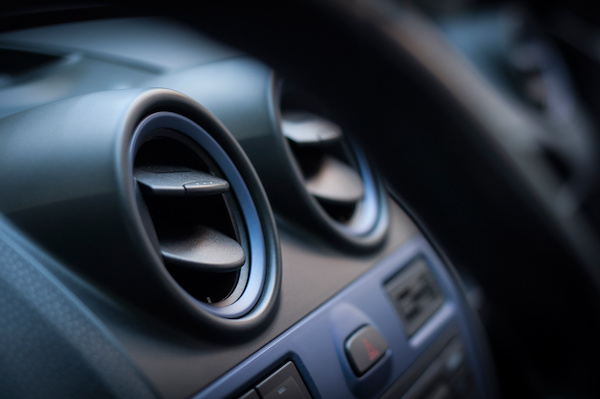Posted on 7/27/2022

A catalytic converter works hard to make sure that clean air goes through your Lexus. When there are issues with it, you may be exposed to harmful emissions. Here are the symptoms of a bad catalytic converter. Engine does not perform as well If you've been noticing that your engine isn't performing the way it should be, look at the catalytic converter. If the converter is clogged, it means that the car will not function well. Even a crack in the catalytic converter can lead harmful gas into the engine, making it perform poorly. Rattling Noises If you are hearing rattling noises, check on the catalytic converter. The reason it does this is that it may be failing, or it's just done for. The rattle is more noticeable when you turn on your Lexus, and it will worsen over time. Sulfur Smells If you are smelling sulfur, investigate that as soon as possible. This would mean that the catalytic converter is not working right to produce odorless sulfur dioxide. Check Engine Lig ... read more
Posted on 6/28/2022

Our Acura can make a lot of sounds – some can be normal, which is why most car owners don’t give much thought when they hear a slight ping. However, when you catch a new and alarming sound, you should never ignore it. Your Acura could be signaling to you that something is wrong. Here are 5 concerning car noises that your Acura can make: Hissing Under the Hood If you hear this sound, it can mean that you have a fluid leak. When coolant leaks, it tends to hit the hot part of the engine. If coolant leaks onto the engine block or manifold, you may hear a hissing noise whenever you accelerate. Rattling Steering Heavy vibrations coming from your Acura’s steering system can be an evident sign that something is wrong. From a loose nut to low power steering fluid, you don’t want to ignore this for too long. Bring your car to us for inspections before it is too late. Popping Exhaust If you hear a loud band or pop coming from your exhaust pipes, it could mean y ... read more
Posted on 5/27/2022

There's no greater fact that Asian car brands remain to be the most reliable vehicles on the market. Out of all the brands on the market, Asian makes tend to stand highest for their dependability. The top brands from this car segment include Toyota, Lexus, Honda, Mazda, Subaru, and Kia. On the other hand, studies have shown that European vehicles scored the lowest. Read on to learn why their reliability stands year after year. Asian automakers employ the very best engineers, who are very meticulous in the details of their many vehicles. They consider style, speed, performance, price, and reliability when designing their vehicles. Moreover, the brand considers all the possible ways that the car can fail and implement ways to prevent them. Asian cars tend to be mass produced in larger quantities than other cars. Therefore, there's more supply, making its price point be more favorable. The brands look to oversaturate and dominate the market. They use long-la ... read more
Posted on 4/28/2022

A good tune-up can help your car run more efficiently and smoothly, saving you money on fuel and extending the life of your diesel engine. However, if you aren't sure when it's time to bring your truck into DS Auto Experts, here are five signs that indicate it may be time for a tune-up. Pay attention to these red flags and you can help avoid any unnecessary repairs down the road! Fuel Usage The most basic thing to look for is how fast your diesel fuel is going. If it's getting low faster than usual, that could be a sign that something isn't right in your diesel engine. Since an engine can't burn fuel if it doesn't have enough air, make sure you check other signs of an aging car. Strange Clunking Noises When You Accelerate There are many common sounds that indicate something is wrong with your truck, and one of them is strange clunking noises when you accelerate. If your car makes unusual sounds when you press on the gas pedal, it may need to be tuned up. A t ... read more
Posted on 3/28/2022

Having a broken air conditioner in your vehicle is one of the worst problems to deal with during the spring and summer. That is why automotive professionals recommend coming in for a spring HVAC system check to ensure no problems occur. In order to understand what could go wrong with your car's A/C, you should start by understanding how it all works. How does a Vehicle's A/C System Work? There are 5 main parts to most auto A/C systems: compressor, condenser, receiver, evaporator, and thermal expansion valve. Cold air is not actually created; instead, it takes the heat and moisture of that air from outside your car. The system relies on one key ingredient to keep the air coming out of your vents cool: refrigerant or freon. 5 Common A/C Problems in Cars A/C Refrigerant Leak - Leaks tend to occur over the winter when the air conditioning isn't typically used. When it goes dormant, the seals can dry out. Whenever this happens, you'll get warm air i ... read more